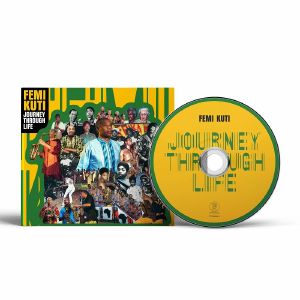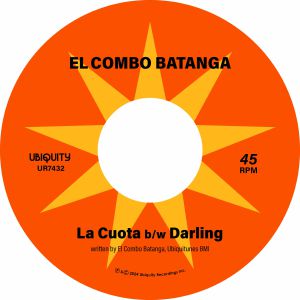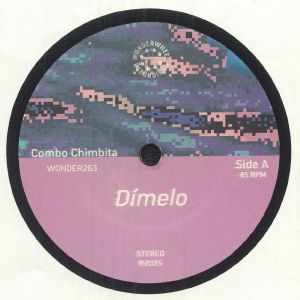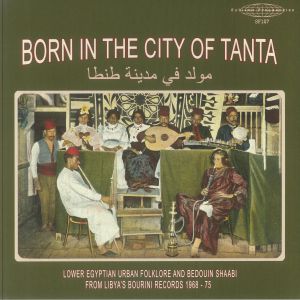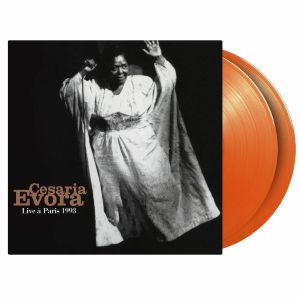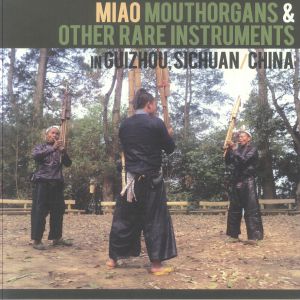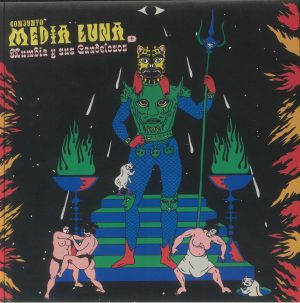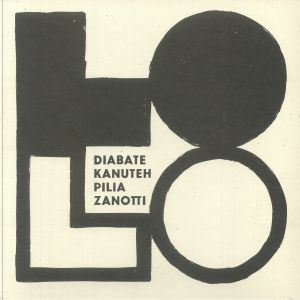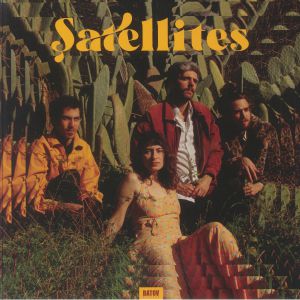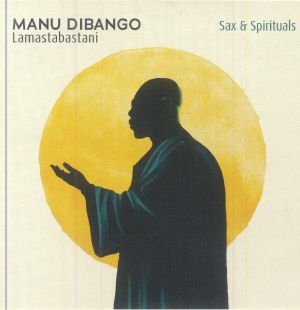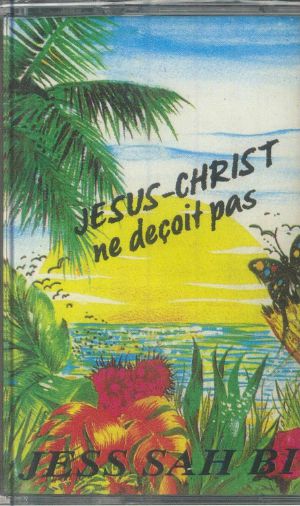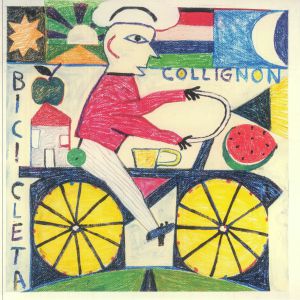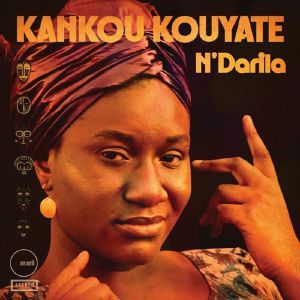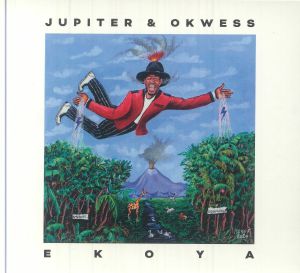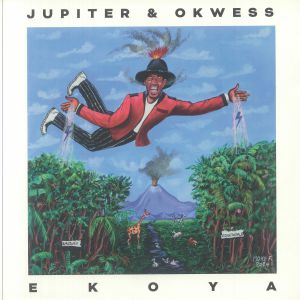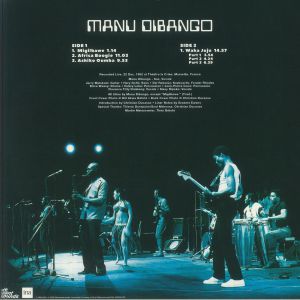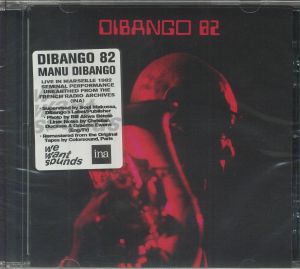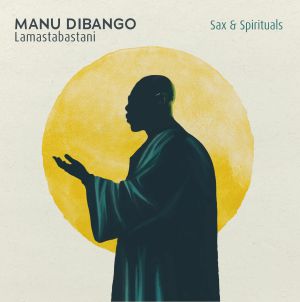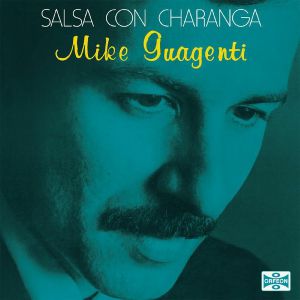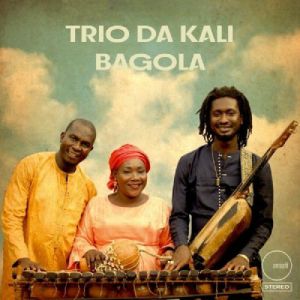
Juno Recommends International
Juno Recommends International: April 2025
Read more...
1
Cat: BATB 007. Rel: 28 Apr 25
International
Samba De Matuto Leao Do Norte De Maragogi - "Nunca Me Faltou Sonora" (Kolago Kult Deep Samba mix) (6:47)
Review: This London-based crew follows up their recent and acclaimed Akyio project with a 12" that dives deep into the vibrant rhythms of Brazil. The original is by the unique Samba De Matuto Leao Do Norte De Maragogi and was recorded by DJ Tudo. Kolago Kult offers a mix that is packed with Latin swagger, organic percussion and jumble of hand drums while the late Master Tiao adds his vocals to this samba-inspired street sound. Kolago Kult then steps up with two psychedelic remixes that are packed with heavy and dubby rhythms and many layers of percussion. A truly global journey, this one.
...Read more
in stock $14.65
2
Review: Journey Through Life witnesses Afrobeat pioneer, pallbearer and powerhouse Femi Kuti's very latest transformation in sound, as we witness the artist turn vividly, self-reflectively inward. The LP proposes a rare self-produced window into Femi's personal evolution, spanning childhood memories to fatherhood and, of course, the unshakable presence of family. As he puts it: "At the end of the day for me family is all that matters. The essence is to manage such events and let love prevail." Long celebrated for his uncompromising political voice, Femi leans evermore into an already evident vulnerability, revisiting earlier material through several, pylonic stylistic anchors: his signature horn-laced grooves, not to mention themes of personal legacy and posterity.
...Read more
in stock $11.05
3
Review: The electrifying return of El Combo Batanga. The Afro-Cuban band and Ubiquity Records favourites descend upon us once more in a sallying storm of Isthmian lightning, bridging the spirit of classic Fania and Tico Records releases, and whipping them back around and through gales of Latin funk, son, timba and boogaloo. "Batanga" refers to the traditional Cuban instrument heard throughout their records, if you listen closely: new A cut 'La Cuota' brings an urgent, hyperbolic funk, while 'Darling' contrasts with nixie moods, a heart-burning Latin soul lament.
in stock $11.05
4
Review: Blending hi-NRG and Latin cumbia, Combo Chimbita present a brand new single for Wonderwheel Recordings, 'Dimelo'. Described as an internal dialogue - a sonic representation of what it feels and sounds like to choose yourself - the refrain "Cuando por fin yo me elegi" is heard repeatedly throughout the track, as self-selection is maximised, contra the impossibility of saving others before oneself. The band's Carolina Oliveros says of the song, "however much you love someone, you can't force them to love yourself in the same way - that is love you have to give yourself." The Busy Twist remixes the idea, self-caring through salvos of oily guitar and toe-tapping woodblock shot, hitting like a health kick.
...Read more
in stock $10.23
5
VARIOUS
Cat: SF 127. Rel: 21 Apr 25
International
Review: This remarkable compilation revives the raw, defiant sound of Bourini Records, which was a short-lived but vital Libyan label active from 1968 to 1975. Far from Cairo's polished pop mainstream, these recordings capture a gritty shaabi hybrid sound that emerged from Egypt's more marginalised regions. Featuring 15 mostly Egyptian artists, including standouts like Sheikh Amin Abdel Qader and Abu Abab, this essential collection showcases striking contrasts such as growling vocal theatrics, haunting laments and minimalist instrumentation that come with an outsider energy that found Bourini's artists voicing the struggles and spirit of the everyday. Over 50 years later, this music is still brilliantly urgent and honest.
...Read more
in stock $24.88
6
Review: Matthieu Chedid and Seu Jorge's long-running collaboration reaches a new peak with this latest release. A-side, the track 'Parioca' brings together the duo's signature stylesiChedid's French flair and Jorge's Brazilian rhythms, resulting in a seamless fusion of groove and melody that invites listeners into a warm, joyful world where their distinct musical identities meet. The B-side's dub mix of 'Parioca' takes things in a deeper direction, layering hypnotic rhythms and atmospheric textures that open up the track, creating an expansive, dubby atmosphere. It's a perfect companion to the original, showing the depth and versatility of their musical partnership, which continues to evolve after more than a decade of collaboration.
...Read more
in stock $22.10
8
in stock $48.64
9
VARIOUS
Cat: SR 557V. Rel: 21 Apr 25
International
Review: On a new compilation tracking the performances of various mouth organ groups in the region, Sub Rosa head Guy Marc Hinant levels a timely critique at the commodification of southern Chinese traditional styles native to Guizhou Province. Though he uses the term Miao here, he also reflects on the label's unfortunate popularisation as a product of global market economisation, a trend which between 2006 and 2013 he witnessed first hand, having lived in the area of Dali, Yunnan. This arresting eight-track compilation follows Hinant's very real effort to champion authentic, non-commercial musicians over and above ethno-touristic copycats and recuperators, resulting in this reverent, on-the-ground collection of wedding dances and travelling songs.
...Read more
in stock $26.26
10
Cat: OKRA 206. Rel: 07 Apr 25
International
Review: Conjunto Medialuna's latest album on Little Beat More is a direct trip to the heart of Bogota's rich cumbia scene. The record blends traditional rhythms with psychedelic influences driven by the Colombian accordion and ecstatic percussion that is so strongly associated with this style. These are two of the jams from it, but frankly you should also check out the full LP. It's a tribute to the guacharaca and the lively street parrandas where each song explores new interpretations of classic sounds. Featuring collaborations with N. Hardem, Mismo Perro, Son Rompe Pera, MC Hydro and Japanese-Latin percussionist Muupy, Noches de Medialuna, it transcends cultural boundaries and joins the dots between traditional and modern urban Latin music which is now so hugely popular around the world.
...Read more
in stock $21.84
11
Review: This timely reissue features a curated selection of standout tracks from Seu Jorge's acclaimed 2002 debut album Carolina (which was originally titled Samba Esporte Fino). The release marked the beginning of Jorge's international fame and was quickly followed by acting roles in City of God and Wes Anderson's The Life Aquatic where his Portuguese covers of the late great David Bowie became iconic. The record was co-produced by Mario Caldato of the Beastie Boys association and mixes up samba, funk and jazz into a timeless sound full of colour and soul for the warmer months of the year. Tracks like the anthemic title song, the funk-tinged 'Mangueira' and the infectious 'Tu Queria' remain essential showcases Seu Jorge's effortless musical charisma.
...Read more
in stock $23.20
12
in stock $14.37
13
Review: The music of this unique quartet explores the roots of African music while embracing its newest possibilities. Featuring Malian singer Rokia Traore and griot Mamah Diabate, alongside Stefano Pilia (Afterhours, Massimo Volume), their collaboration merges with Gambian griot Jabel Kanuteh, a kora virtuoso, and percussionist Marco Zanotti. The fusion of Malian and Gambian rhythms with Italian influences creates a fresh new sound that blends the ancient and the modern. The music weaves jazz, rock and folk with a number of experimental digressions but never at the expense of an underlying groove and high-fidelity sense of musicianship that connects diverse cultural identities.
...Read more
in stock $25.42
14
in stock $24.05
15
in stock $16.03
16
Cat: ATFA 051CS. Rel: 21 Apr 25
International
in stock $14.10
17
Review: Cllignon is back with more musical adventuring in the form of Bicicleta, a new album recorded during their last summer tour. As such it does a fine job of capturing the band's live energy but also dives deeper into their sound where you will find a melange of nice sunny grooves, deft psychedelic guitars and sharp keyboard riffs. The album spans multiple influences from the Maloya rhythms of 'Fonker la Mer' to the Brazilian groove of 'Vai Vai Vai (Into the Stars).' Recorded while Jori spent a year in the Netherlands, it celebrates cycling as a symbol of freedom and adventure and certainly travels far with each piece adding up to a fine story overall.
...Read more
in stock $30.41
18
out of stock $17.42
19
in stock $16.03
20
Review: Ekoya is the fourth album from Jupiter & Okwess and it marks a new chapter in their sound as they embrace Congolese funk, rock, Afropop and Latin influences. This record was conceived during a South American tour and recorded in Mexico so reflects a cross-cultural fusion that's deeply rooted in African history and features collaborations with artists like Flavia Coelho and Mare Advertencia. Along the way, the music tackles themes of change, resilience and the global challenges we face so tracks like 'Selele' and 'Orgillo' fuse political commentary with big rhythms. Through a great mix of languages, rich instrumentation and powerful messages, Ekoya is a wonderfully worldly celebration.
...Read more
in stock $25.15
21
Cat: LPFVA 001. Rel: 28 Apr 25
International
in stock $28.19
22
Review: Manu Dibango knew how to work a crowd. By the time he hit the stage at Marseille's Theatre La Criee in December 1982, he had long mastered the art of turning a gig into a full-blown celebration. This was the man who took makossa global, who made 'Soul Makossa' an international sensation a decade prior and who could pivot between jazz, funk and African rhythms like it was nothing. The recording, unearthed from the INA archives, captures him in peak form, leading an eight-piece band through a set that refuses to sit still. 'Africa Boogie' is all clipped guitars, tight horns and a bassline that struts like it owns the place. 'Ashiko Oumba' turns the groove alluringly, locking into intricate polyrhythms before erupting into pure brass-fuelled joy. Then there's 'Waka Juju', sprawling across three parts, moving from simmering tension to full-throttle release with the kind of control only Dibango could pull off. He's conducting, shaping the music in real-time, every solo a conversation, every break a setup for the next explosion of sound. Four decades later, the set still feels alive. It's there in the call-and-response with the crowd, the sweat-soaked momentum of a band that knows it's on fire. Dibango, effortlessly cool at the centre of it all, proves once again why his music never ages.
...Read more
in stock $36.21
23
in stock $19.89
24
in stock $27.91
25
in stock $26.81
26
in stock $36.47
27
Review: Salif Keita is known as the "golden voice of Africa" and now returns with So Kono, an intimate acoustic album that marks a departure from his usual style. Though reporting he was initially hesitant about releasing an acoustic record, Keita who is traditionally a composer rather than a guitarist, was inspired during the 2023 Kyotophonie Festival in Japan where he was surrounded by the tranquillity of a Zen temple and supported by his musicians. He embraced vulnerability and got to work on So Kono, meaning "in the room" in Mandinka, and it was recorded in the intimacy of his hotel room. The album features a mix of new songs and reworked classics with Keita's powerful voice enriching the sounds.
...Read more
in stock $25.15
28
in stock $14.37
29
in stock $28.19
30
in stock $18.24

 USD
USD





